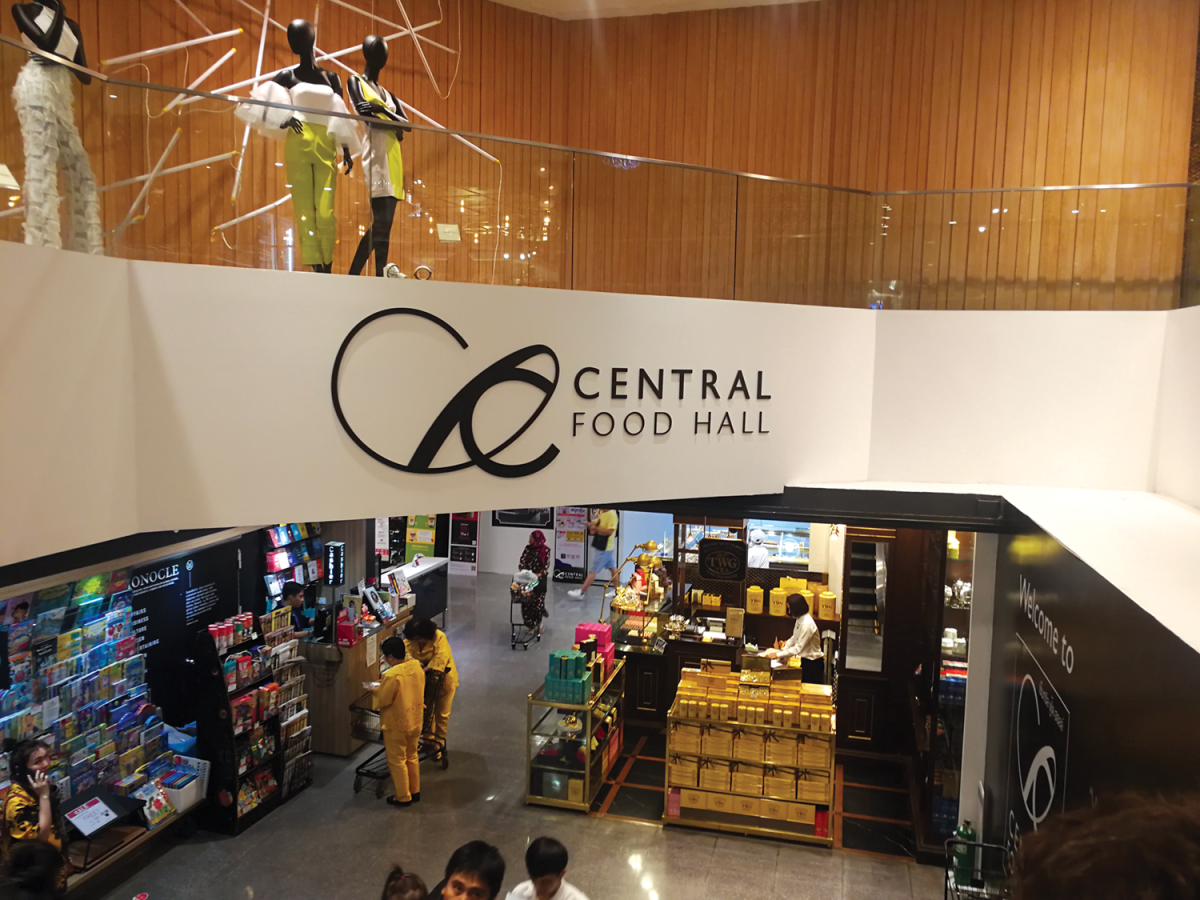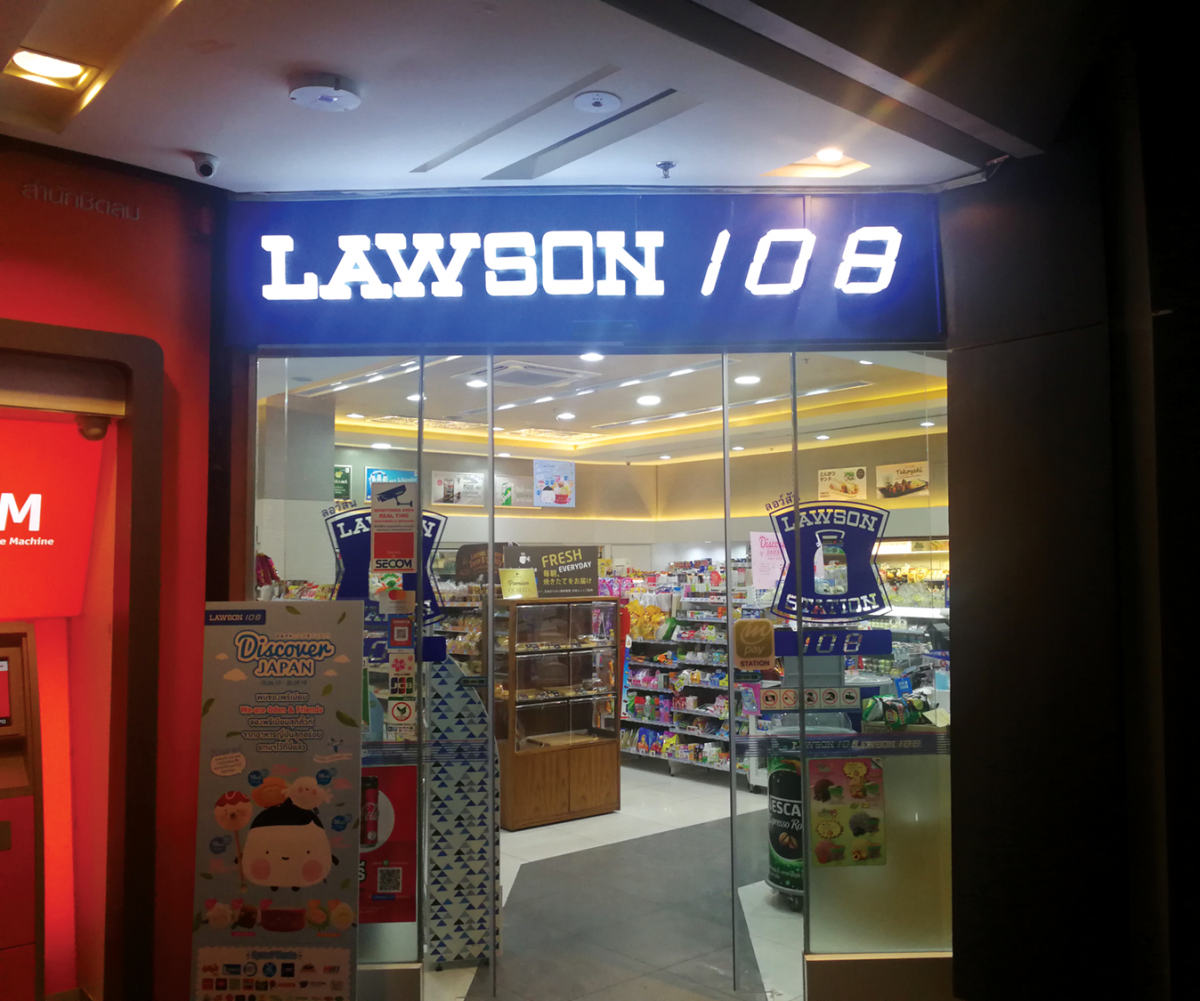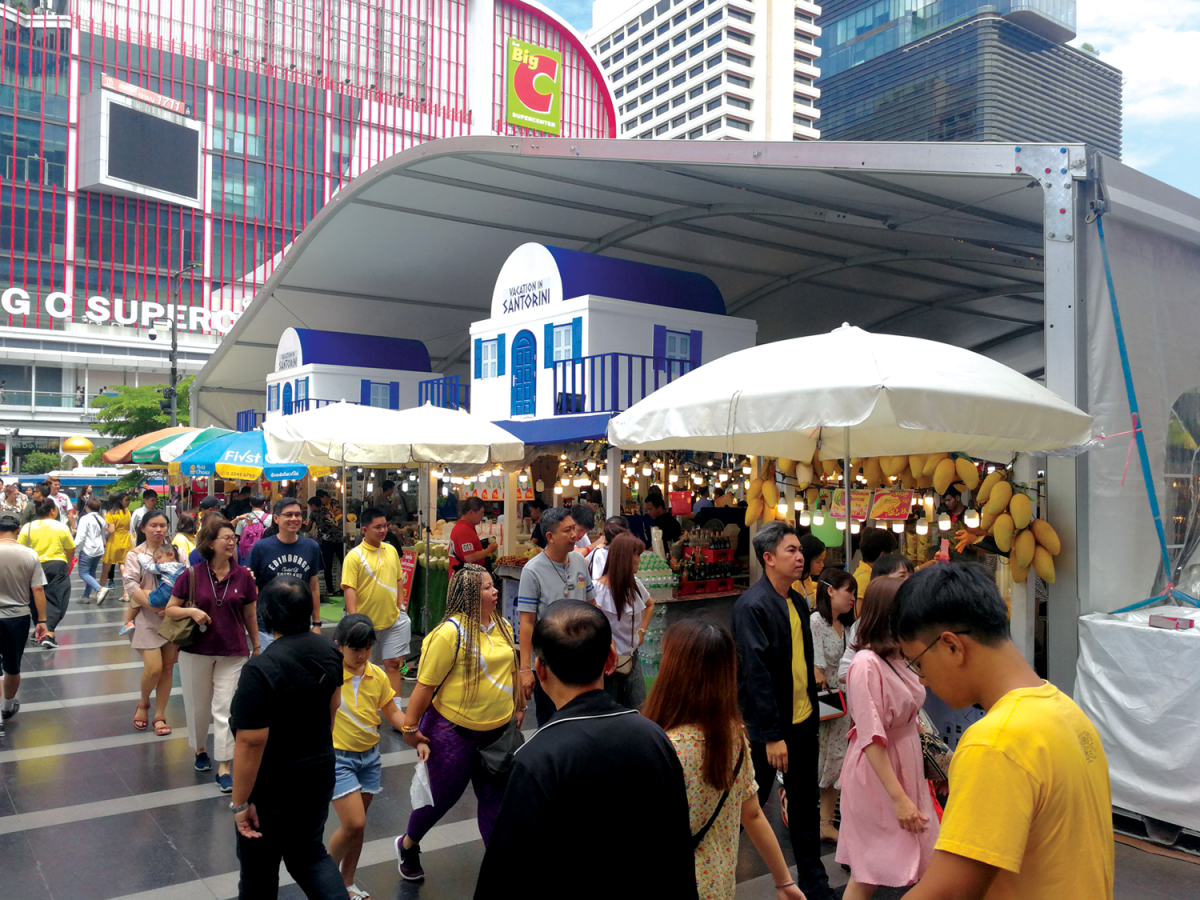Attendees traveling to the 2020 NACS Convenience Summit Asia in Bangkok, Thailand, March 3-5 will be joining an illustrious and informed group. The Thai capital is the most popular destination for international travelers in Asia Pacific, according to Mastercard’s 2019 Asia Pacific Destinations Index, attracting 22.8 million overnight international travelers in 2018, compared with 14.7 million for second-place Singapore and 11.3 million for fifth-ranked Seoul.
Combined, the top five cities in Asia Pacific attract 22% of all international traveler arrivals in the region and capture more than 25% of total international travel spending, primarily driven by explosive growth in outbound travel from mainland China.
“That’s one reason we’re going to Bangkok,” said Michael Davis, NACS vice president of member services. Bangkok will provide a cornucopia for all things convenience, Davis continued. “It is a densely populated urban market with active and engaged users of convenience stores,” he said. “Bangkok has successful CVS-only and CVS/motor fuel concepts. It is a friendly, open society, and retail supports tourism as well as the local population.”
According to Davis, delivery is becoming broadly accepted in Bangkok, better-for-you products are increasingly on offer, and Bangkok boasts some of the cleanest bathrooms in the world. “The future of convenience retailing is in Asia, and Bangkok supports some of the best and most successful brands and concepts in Asia, including CP All PLC-7-Eleven, PTT Public Company Café Amazon, Central Food Hall, Family Mart, Tops Daily, Shell and Starbucks Reserve,” he said.
Thailand is the tenth largest grocery market in the region, with US$48 billion in 2018 sales projected to reach US$63 billon by 2023, representing a compound annual growth rate (CAGR) of 5.7%. Thailand also is expected to see some of Asia’s most rapid growth in online grocery during the next five years, albeit from a low base, as key players including Central Group, JD.com, Tesco Lotus and Villa Market build better infrastructure and more seamless apps for shoppers, the IGD reports.
As in other global markets, convenience retailers in Thailand and Bangkok, in particular, are meeting consumer needs and lifestyles with new formats and technologies. Other trends include: smaller stores, an increased focus on foodservice and healthier foods, plus range enhancement in convenience stores. Sustainability also is rising up the retailer agenda.
Fresh and Sustainable
Central Group, which operates Central Food Hall and various formats under the Tops banner, is harnessing both fresh and sustainable themes with the launch of a farmers’ market concept called Jingjai Market within its Tops Market stores. There are two zones in the store: an area where local farmers sell their produce directly to shoppers and a section with ready-to-eat food. Farmers enjoy free space for a few months and then pay a nominal fee for rental. Tops Market does not profit from the sales but does benefit from increased store traffic.

 Top: Central Food Hall in Bangkok features products from around the world. Bottom: Lawson convenience stores are expanding in Thailand with 30 stores by 2021, widening its current network in Bangkok's transit system.
Top: Central Food Hall in Bangkok features products from around the world. Bottom: Lawson convenience stores are expanding in Thailand with 30 stores by 2021, widening its current network in Bangkok's transit system.
Natural, plant-based packaging is used creatively to wrap vegetables, and instead of plastic bags, all fresh produce is packed in paper bags. Shoppers also are encouraged to bring their own reusable bags. The farmers have personalized booths in the store, featuring their names, photos and information about their farms, as well as tips for preparing vegetables in dishes. There are currently seven Jingjai Market stores, but Central Group plans to roll out the concept to 18 Tops Market sites this year.
Central Group also is at the forefront of digital innovation, and it’s evident at its Tops Daily flagship store in the Singha Complex store in Bangkok, which IGD Asia bills as the most technologically advanced store in Thailand. The store meets the needs of local office workers and students who may not carry cash, and features scan-and-go shopping via the Tops Box app, electronic shelf labels and a scan wall. The wall showcases office-popular items (and QR codes), which shoppers can scan, buy in bulk and get delivered.
But it’s not all about tech. Food-to-go occupies a central position, and fresh meals are prepared in-store every hour. It drives footfall, as does the Arigato freshly ground coffee brand. The store caters to health-conscious shoppers, too, with fresh salads, organic produce and fresh juices. There’s a wide range of daily essentials, and the offer is topped off with Tops Daily’s My Beauty department, offering health and beauty products.
C-stores for Commuters
Elsewhere, the Saha Group, which operates Lawson convenience stores in Thailand, plans to open 30 stores in transit areas by 2021, widening its current network in Bangkok’s mass transit system.
On the technology front, the company is also planning its first unmanned convenience store in Thailand. It will open under the banner of His & Her and occupy just 100 square meters (328 square feet), selling 300 lines ranging from instant noodles to branded clothes. The unmanned store uses facial recognition, QR code reading and radio frequency identification technologies and features multiple payment systems. It will be operated by ICC International, the group’s retail arm. The group plans to invest significantly in new servers, applications and big data systems to analyze customer habits.
The future of convenience retailing is in Asia, and Bangkok supports some of the best and most successful brands and concepts in Asia.
Omni-channel Model
CP All, which operates 7-Eleven stores in Thailand, is the market leader and expanding its footprint further, aiming to open 700 new stores per year in Thailand. It added 720 in 2018, taking its chain to nearly 11,000 stores.
The company has focused on improving and enhancing store management by renovating stores for greater convenience and creating positive experiences for customers. The retailer has also integrated omni-channel into its business as part of a redesign for “technology disruption.” This new format combines the strengths of 7-Eleven’s offline and online services by making it easier for customers to order products online, and then pick up the products at the 7-Eleven store of their choice.
CP All also has spied new business opportunities with the launch of its “Speed-D” delivery service, which leverages its extensive branch network to offer mail pick-up and delivery from 7-Eleven stores. The company has developed a digital payment system to facilitate purchases, which aligns with Thailand’s national policy to become a “cashless society” and has applied retail technology to create a pilot “digital store” that offers new service experiences for consumers.
Central Group is getting in on the delivery act, too. In February 2019, the business invested $200 million Singapore dollars (US$147 million) in Grab Thailand, Southeast Asia’s leading online-to-offline mobile platform with parcel delivery, car hailing and food delivery services.
 Bangkok retailers are launching farmers’ market concepts, where local farmers can sell their products directly to shoppers.
Bangkok retailers are launching farmers’ market concepts, where local farmers can sell their products directly to shoppers.
In a similar vein, Tesco Lotus has recently partnered with the online platform Shopee to enable users to buy lines including fresh foods and grocery. Launched in August 2019, Shopee users can now buy more than 10,000 items supplied by Tesco Lotus in Thailand. The online store covers more than 10 categories, including electrical appliances, fresh food, household, dry grocery, bakery and health and beauty products. Customers can accumulate Club Card points, exactly as they do when they shop at Tesco Lotus stores and the retailer’s other channels.
Tesco Asia plans to extend its reach in Thailand. It already serves 69% of the population and is reported to be winning significant growth in the Bangkok area. According to Alison Horner, CEO of Tesco Asia, Thailand’s urban population of 43.9% in 2010 will rise to 58.4% by 2030, representing significant growth opportunities. Tesco plans to add another 750 convenience stores across Thailand during the next three years.
Meanwhile, the company is simplifying both its large stores and Tesco Lotus Express convenience stores. Horner said Tesco plans to drive higher returns in convenience by reducing the number of deliveries, cutting fixed work, implementing regional promotions and a new price policy. The retailer also is looking to create new convenience propositions by bringing together the best of its existing offer and a new range to address daily needs. New additions consist of ready to eat, health and beauty and WIGIG (when it’s gone, it’s gone) promotions. Horner said this offer has been tested in 30 locations, yielding positive results with sales increases across ready to eat (110%), fresh for later (9%), bakery (85%) and health and beauty (9%).
“Tesco Lotus Express is moving from being a ‘mini supermarket’ toward providing an increased convenience range,” said Soo Eng, a senior research analyst specializing in Thailand at IGD Asia. “It is maintaining its fresh offer, while increasing bakery, adding partnerships with Dairy Queen within Express stores and introducing coffee and meal deals.”
Shell also is responding to the consumer need for food on-the-go in Thailand with its latest rendition of the Select brand—Generation 5. According to the company, remaining relevant to the country’s needs and challenges is vital, as is recognizing that customer needs have evolved. Today’s shoppers, especially younger customers, are “accessibility natives,” who expect to get what they want, when they want it and anywhere, the retailer says. Shell aims to appeal to this cohort with Select Gen 5.
Whether it’s food to go or the latest tech, Thailand and Bangkok look set to provide rich pickings for convenience retail excellence during Convenience Summit Asia in March 2020. For more information or to register, visit www.convenience.org/asia.
Awards Honor Achievement and Innovation
 The prestigious NACS Convenience Summit Asia awards program is a highlight of the annual summit. The competition recognizes outstanding achievements in the Asian retail community and provides one of the greatest benchmarks of global convenience retailing excellence in Asia.
The prestigious NACS Convenience Summit Asia awards program is a highlight of the annual summit. The competition recognizes outstanding achievements in the Asian retail community and provides one of the greatest benchmarks of global convenience retailing excellence in Asia.
Judged by pillars of the convenience community, winners are selected among the following categories:
Asian Leader of the Year
The award recognizes and honors the contribution of the most successful and influential convenience industry leader of 2020 in the Asian region.
Asia Convenience Retail Technology Award
The award recognizes a convenience retailing company that has pursued a significant and compelling technology initiative. First introduced at the NACS Convenience Summit Europe in 2015, the award honors retailers who are making far-sighted, long-term investments in technology innovation, keeping retailers convenient and hassle-free for customers.